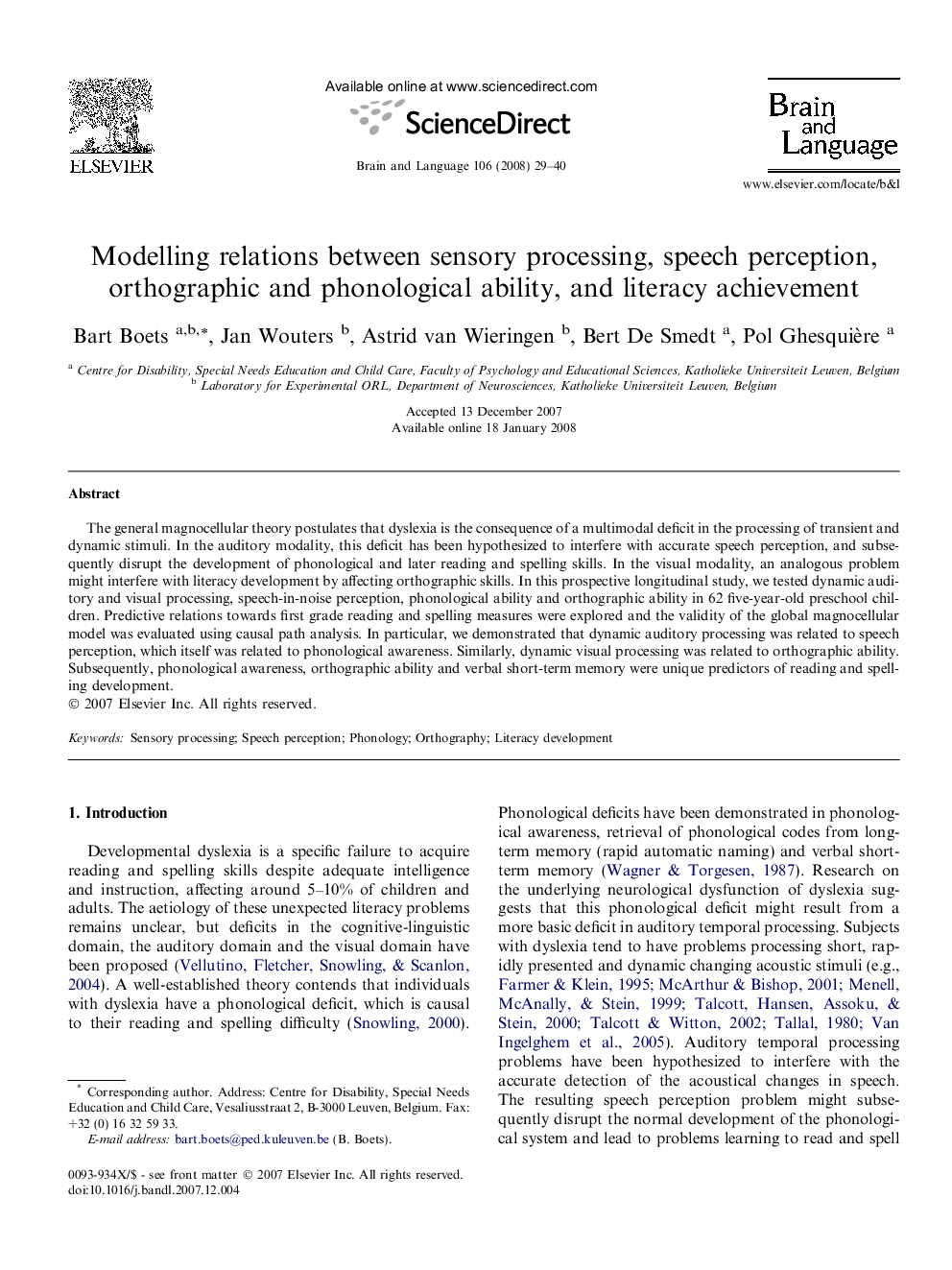| Article ID | Journal | Published Year | Pages | File Type |
|---|---|---|---|---|
| 925692 | Brain and Language | 2008 | 12 Pages |
The general magnocellular theory postulates that dyslexia is the consequence of a multimodal deficit in the processing of transient and dynamic stimuli. In the auditory modality, this deficit has been hypothesized to interfere with accurate speech perception, and subsequently disrupt the development of phonological and later reading and spelling skills. In the visual modality, an analogous problem might interfere with literacy development by affecting orthographic skills. In this prospective longitudinal study, we tested dynamic auditory and visual processing, speech-in-noise perception, phonological ability and orthographic ability in 62 five-year-old preschool children. Predictive relations towards first grade reading and spelling measures were explored and the validity of the global magnocellular model was evaluated using causal path analysis. In particular, we demonstrated that dynamic auditory processing was related to speech perception, which itself was related to phonological awareness. Similarly, dynamic visual processing was related to orthographic ability. Subsequently, phonological awareness, orthographic ability and verbal short-term memory were unique predictors of reading and spelling development.
